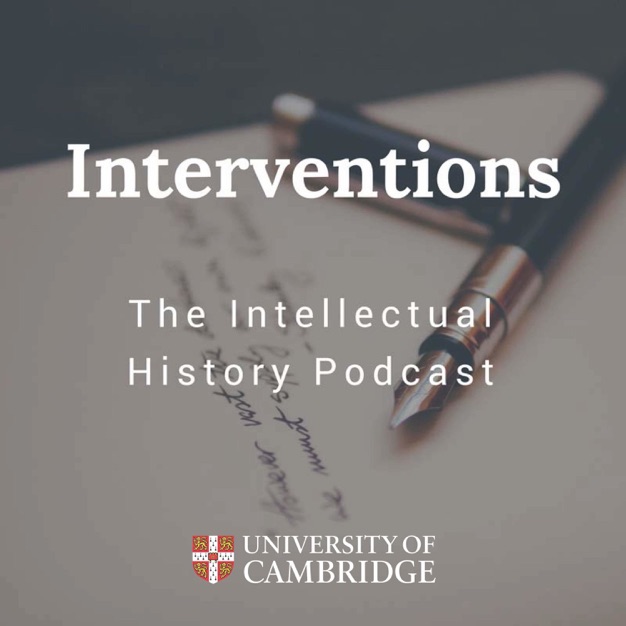
Interventions | The Intellectual History Podcast
Interventions
What do intellectual historians currently investigate? And why is this relevant for us today? These are some of the questions our podcast series, led by graduate students at Cambridge, seeks to explore. It aims to introduce intellectual historians and their work to everyone with an interest in history and politics. Do join in on our conversations!
- 1 hour 27 minutesFrancis Bacon: A Lion under the Throne (with Richard Serjeantson)
According to some, Francis Bacon accomplished nothing less than a scientific revolution. Some even say he was the founder of modern science itself. Born into a world where natural magic, astrology, alchemy, and the wisdom of the Ancients were all accepted as authentic sciences, he left behind a body of work expressing a new and strange idea. In this radical vision, humanity was destined to free itself from its mundane misery by investigating nature and discovering its laws. It was a vision of collective action and incremental progress that sustains scientific practice to this day. Yet Bacon was also a deeply paradoxical figure. A lover of humanity and believer in progress, he was also a Machiavellian statesman committed to advancing the interests of the English state, as well as a self-seeking loner who married for money and disinherited his wife.
Richard Serjeantson, Cambridge’s foremost authority on Bacon’s life and legacy, tells us the intellectually exhilarating story of the man who ushered in our modern age of science.
This episode is hosted by Sam Tchorek-Bentall
17 December 2024, 9:00 am - 39 minutes 10 secondsBig States, Small States, and the End of Enlightenment (Prof. Richard Whatmore)
What lessons can we draw from eighteenth-century thought about the relationship of big and small states? What are the limits of intellectual history? How and why did the Enlightenment end? Richard Whatmore, Professor of Modern History at the University of St Andrews, joins us to discuss these questions and more.
24 September 2024, 8:30 am - 40 minutes 13 secondsEquality, Intellectual Traditions, and the Seventeenth Century (Prof. Teresa Bejan)
What can the seventeenth century teach us about equality? Why do philosophers construct intellectual traditions and how do we use them? In what ways is political theory an educative endeavour? These are some of the questions we asked Teresa Bejan, Professor of Political Theory at the University of Oxford.
Publications mentioned in this episode include:
First Among Equals: The Practice and Theory of Early Modern Equality. Under contract with Harvard University Press.
Mere Civility: Disagreement and the Limits of Toleration (Harvard University Press, 2017)
“The Historical Rawls,” Special Forum for Modern Intellectual History, co-edited with Sophie Smith and Annette Zimmermann (2021).
“Rawls’s Teaching and the ‘Tradition’ of Political Philosophy,” Modern Intellectual History (2021).
“‘Since all the World is Mad, Why should not I be so?’ Equality, Hierarchy, and Ambition in the Thought of Mary Astell.” Political Theory (online first May 2019).
“The Two Clashing Meanings of Free Speech,” The Atlantic (2 Dec. 2017).
“Teaching the Leviathan: Thomas Hobbes on Education,” Oxford Review of Education 36:5 (2010).
26 April 2024, 7:01 pm - 35 minutes 53 secondsHume, the History of Philosophy, and the Concept of the People (Prof. James Harris)
How can we understand thinkers in their own terms? Why is such an approach particularly fruitful to understanding Hume? What can philosophy and the history of political thought learn from one another? What can Hobbes's conception of the people teach us about populism? James Harris, professor of the history of philosophy at the University of St Andrews, joins us to discuss these questions and more in this episode.
This episode's hosts: Zack Rauwald & Elena Yi-Jia Zeng.
13 February 2024, 3:00 pm - 36 minutes 21 secondsRepresentation, Public Debt, and the Ends of History (Dr Michael Sonenscher)
What is the relationship between war and representation? Why can't we understand the French Revolution without thinking about the political management of public debt? And what does the future have to do with how we write history? These are some of the questions answered by Michael Sonenscher, Fellow of King's College, University of Cambridge.
This episode's hosts: Michael Kretowicz & Charlotte Johann.
7 November 2023, 5:00 pm - 31 minutes 10 secondsHegel, Revolution, and Historicism (Prof. Richard Bourke)
How does skepticism serve history? What lessons does Hegel hold for the modern historian? Why is an understanding of historical consciousness so important across the humanities? These are some of the questions we asked Richard Bourke, Professor of the History of Political Thought at the University of Cambridge.
Publications mentioned in this episode include:
István Hont and Michael Ignatieff, Wealth and Virtue: The Shaping of Political Economy in the Scottish Enlightenment (CUP: 1983)
Richard Bourke, Peace in Ireland: The War of Ideas (Pimlico: 2003)
Richard Bourke, Empire and Revolution: The Political Life of Edmund Burke (Princeton University Press: 2015)
Richard Bourke and Quentin Skinner, eds. History in the Humanities and Social Sciences (CUP: 2002)
Richard Bourke, Hegel’s World Revolutions (Princeton University Press: forthcoming, 2023)
30 June 2023, 10:29 am - 28 minutes 5 secondsSpinoza, Feminism, and the History of Philosophy (Prof. Susan James)
What makes the seventeenth century such a fascinating period in the history of philosophy? In what ways does Spinoza speak to contemporary philosophical problems? And in what sense is philosophy an inherently historical discipline? These are some of the questions that we asked Susan James, Professor of Philosophy at Birkbeck College London.
Some books and papers mentioned in this episode are:
- Augustine of Hippo: A Biography by Peter Brown
- The Blazing World by Siri Hustvedt
- Spinoza on philosophy, religion, and politics: the Theologico-political treatise by Susan James
- 'Responding Emotionally to Fiction: A Spinozist Approach' by Susan James
- Early Modern French Thought by Michael Moriarty
11 February 2020, 7:51 pm - 35 minutes 38 secondsDecolonisation, Freedom, and African Intellectual History (Prof. Emma Hunter)
What can decolonisation in twentieth century Africa tell us about the history of political thought? How might African intellectual history shed light on new methods and modes of inquiry? And what does it mean to ‘decolonise’ intellectual history? Emma Hunter, professor of global and African history at the University of Edinburgh and the 2018/19 Quentin Skinner Fellow, joins us to discuss these questions and more in this episode.
9 October 2019, 11:52 am - 30 minutes 36 secondsWeber, Liberty, and the Anthropocene (Prof. Duncan Kelly)
What can history contribute to the pursuits of contemporary political theory? What does the notion of the Anthropocene have to do with the history of political thought? And what exactly is the legacy of the political thought produced during the First World War? These are some of the questions discussed in this episode with Duncan Kelly, professor of political thought and intellectual history at the University of Cambridge, and the author of Politics and the Anthropocene (2019).
23 August 2019, 9:23 am - 35 minutes 42 secondsLaw, History and Global Governance (Dr Megan Donaldson)
What is the place of history in the study of law? How do historians of international law conceive of emergent actors on the global stage? To what extent do legal histories shape the expectations and commitments of today’s international institutions? Dr Megan Donaldson, recently appointed to a lectureship in Public International Law at University College London, addresses these questions and shares her experience of a complex intersection between law, legal history and the history of political thought.
#Globalgovernance #legalhistory #internationallaw #deliberativedemocracy #publicity #interwarperiod
12 August 2019, 9:11 am - 33 minutes 56 secondsGender and Political Thought (Dr Anna Becker)
How does an attention to gender change our understanding of Renaissance political texts and the history of ideas more broadly? How can we challenge the traditional divide between the political public and the apolitical private spheres? And in what ways is re-evaluating the conceptual relationship between disadvantaged groups in the early modern period fruitful for our own times? We spoke to Anna Becker, from the Centre of Privacy Studies at the University of Copenhagen, to discuss these questions and more.
#gender #Renaissance #household #Machiavelli #Bodin #power #sovereignty
10 April 2019, 9:02 am - More Episodes? Get the App
Your feedback is valuable to us. Should you encounter any bugs, glitches, lack of functionality or other problems, please email us on [email protected] or join Moon.FM Telegram Group where you can talk directly to the dev team who are happy to answer any queries.
 MindPop
MindPop
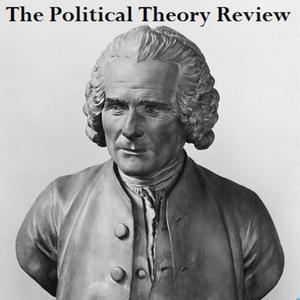 The Political Theory Review
The Political Theory Review
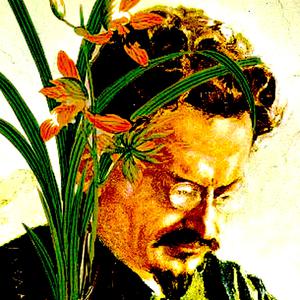 Trotsky & the Wild Orchids
Trotsky & the Wild Orchids
 Political Philosophy Podcast
Political Philosophy Podcast
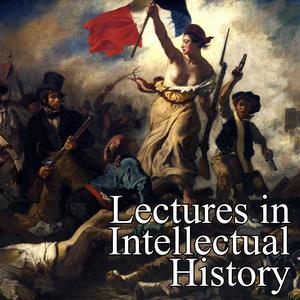 Lectures in Intellectual History
Lectures in Intellectual History
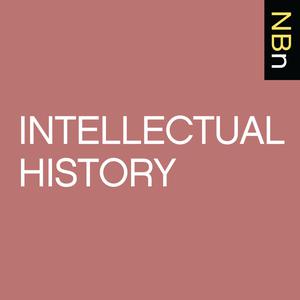 New Books in Intellectual History
New Books in Intellectual History